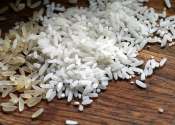A photo taken with a mobile phone to detect frauds in rice labelling
A simple photograph taken with a mobile phone is able to detect irregularities in the labelling of rice, according to an investigation conducted by the Complutense University of Madrid (UCM) and the Scintillon Institute of ...








